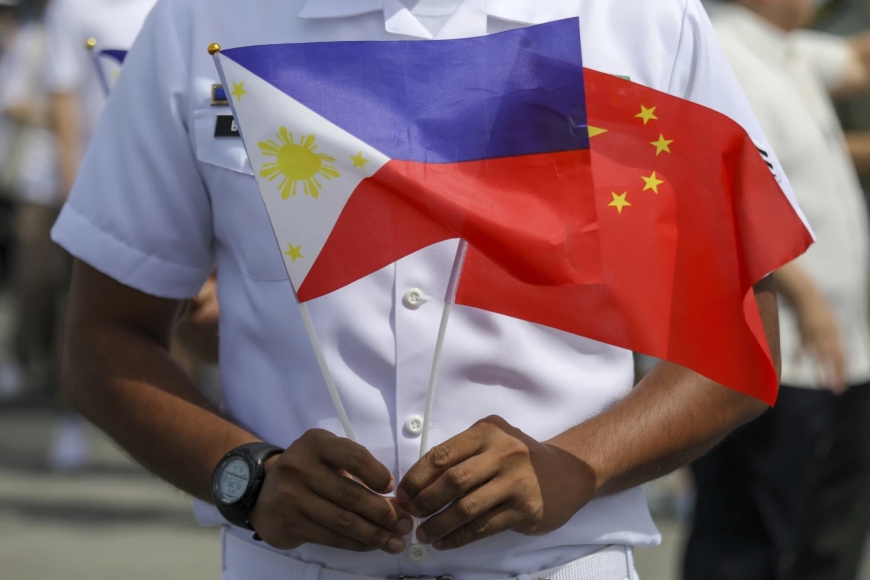China and the Philippines Reach Agreement to Prevent Clashes at Disputed Shoal
China and the Philippines have struck a significant deal aimed at reducing tensions and preventing confrontations at the highly disputed Second Thomas Shoal in the South China Sea, the Philippine government announced on Sunday.

China and the Philippines have struck a significant deal aimed at reducing tensions and preventing confrontations at the highly disputed Second Thomas Shoal in the South China Sea, the Philippine government announced on Sunday.
The shoal, occupied by the Philippines but also claimed by China, has been a hotspot for increasingly hostile encounters at sea, raising fears of a larger conflict that could potentially involve the United States.
Diplomatic Breakthrough
The agreement was finalized after a series of diplomatic meetings in Manila and the exchange of notes between Philippine and Chinese diplomats. Two Philippine officials, speaking anonymously, confirmed the deal to the Associated Press, and the government issued a statement announcing the accord without providing detailed specifics.
"Both sides continue to recognize the need to deescalate the situation in the South China Sea and manage differences through dialogue and consultation," the Philippine Department of Foreign Affairs stated. "The agreement will not prejudice each other’s positions in the South China Sea."
Historical Context
The conflict over Second Thomas Shoal, known as Ayungin Shoal by Filipinos and Ren’ai Jiao by the Chinese, has been ongoing for years. The situation has flared repeatedly, with Chinese coast guard and navy forces often using aggressive tactics to prevent supplies from reaching Filipino military personnel stationed on the BRP Sierra Madre, a grounded and rusting warship serving as an outpost.
Recent Confrontations
Tensions escalated dramatically on June 17 when Chinese forces rammed and boarded two Philippine navy boats, seizing supplies and inflicting injuries on Filipino personnel. This incident spurred both nations to expedite their negotiations to avoid further clashes.
Agreement Details
The specifics of the deal remain undisclosed, but it reportedly omits two key demands previously insisted upon by China: a prohibition on the transport of construction materials to the shoal and the right for Chinese authorities to inspect Philippine supply ships. The Philippines rejected these conditions, which were subsequently excluded from the final agreement.
International Reactions
The agreement has drawn international attention and praise, with hopes that it might serve as a model for similar arrangements between China and other countries involved in South China Sea disputes. The United States and its allies, including Japan and Australia, have condemned previous Chinese actions at the shoal and have called for adherence to international law and the preservation of freedom of navigation in the region.
Broader Implications
The South China Sea is a critical global trade route with abundant fishing grounds and undersea gas deposits. In addition to China and the Philippines, Vietnam, Malaysia, Brunei, and Taiwan have overlapping claims in the area, making it a potential flashpoint for regional conflict. The U.S. maintains a strong military presence in the region to support freedom of navigation operations, which China views as destabilizing.
Washington, which has no territorial claims in the South China Sea, has reiterated its commitment to defend the Philippines, its oldest treaty ally in Asia, against armed attacks, including in disputed waters.
Future Prospects
While the deal marks a significant diplomatic achievement, its successful implementation and longevity remain uncertain. The agreement aims to reduce immediate tensions, but the underlying territorial disputes and strategic rivalries continue to pose substantial challenges.
This breakthrough is a crucial step toward mitigating conflict in one of the world's most contentious maritime regions. Continued dialogue and cooperation between China and the Philippines will be essential to maintaining peace and stability in the South China Sea.













































